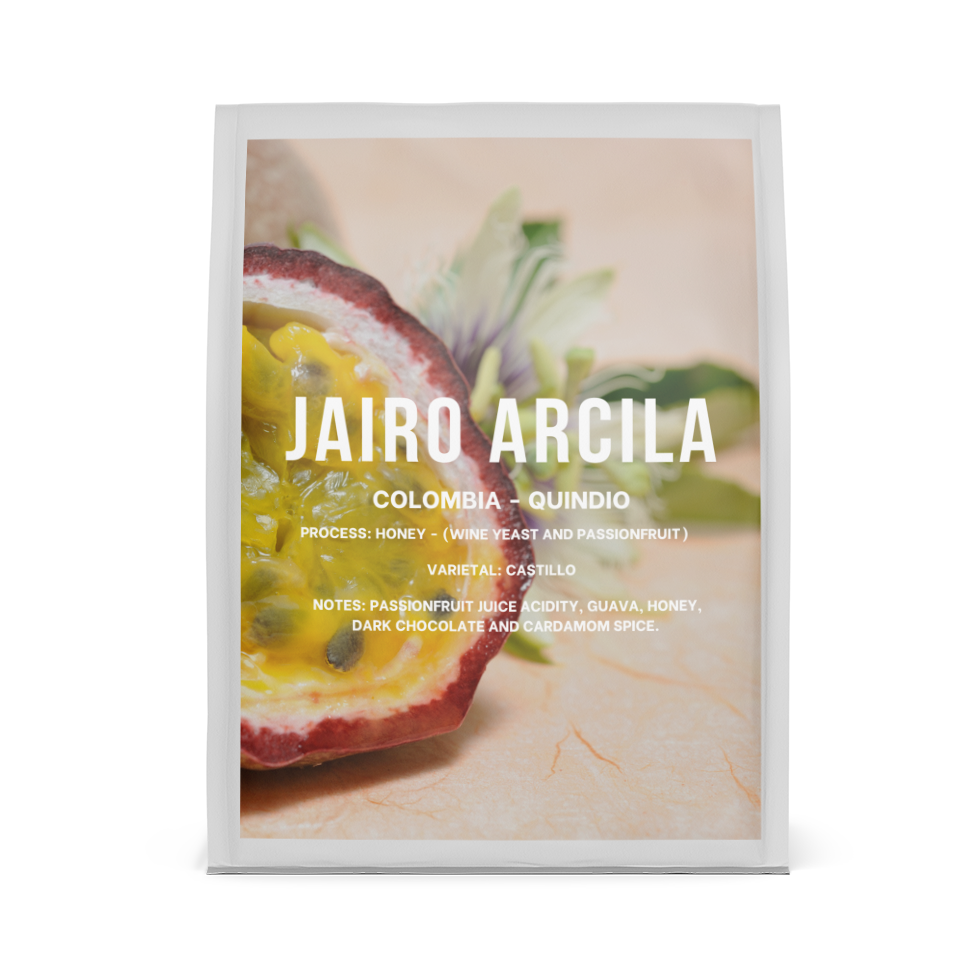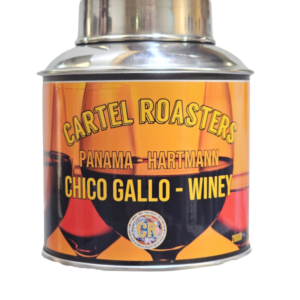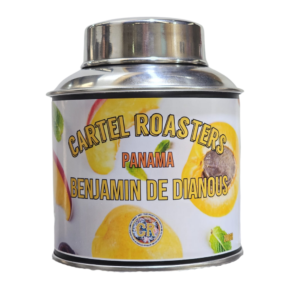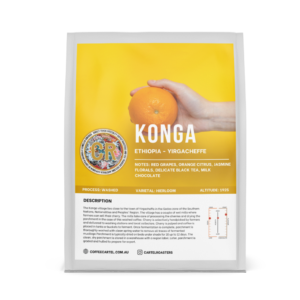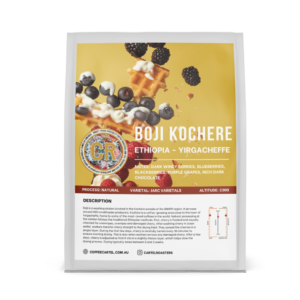About this coffee
- Altitude: 1500 MASL
- Farmer: JAIRO ARCILA
- Score: 88.25
- COUNTRY: COLOMBIA
NOTES: PASSIONFRUIT JUICE ACIDITY, GUAVA, HONEY, DARK CHOCOLATE AND CARDAMOM SPICE.
This coffee was grown by Jairo Arcila at the farm Santa Mónica. This coffee was exposed to a dry anaerobic fermentation period of 72 hours with the pulp on. During this fermentation stage, passion fruit pulp and wine yeast were added.
The cherries were then pulped and placed to dry on raised beds until ideal moisture content was achieved. This microlot is 100% Castillo. This variety was developed by Federación Nacional de Cafeteros. It is more productive than Caturra and resistant to coffee leaf rust
Jairo Arcila is a third-generation coffee grower from Quindio, Colombia. He is married to Luz Helena Salazar and they have two children together, Carlos and Felipe Arcila. Jairo’s first job was at Colombia’s second-largest exporter, working as their Mill Manager for over 40 years until his retirement in 2019.
For Colombia, coffee is far more than an agricultural export—it is the lifeblood of the economy. Since the 1800s, coffee cultivation has driven economic growth and stability even amid political turmoil. Today, coffee remains Colombia’s #1 legal export, bringing in $2.4 billion annually and representing 2% of GDP. Over 12 million acres are in coffee production, providing employment for over 800,000 Colombian families. The industry directly supports livelihoods across rural communities in the Andean highlands. Unlike other major coffee producers that rely on large estates, around 90% of Colombia’s output comes from small family-owned farms averaging 5 acres. This smallholder model supports rural development and connects hundreds of thousands to the global commodity market.
Beyond economic benefits, coffee also shapes Colombia’s global image and national identity. The iconic Juan Valdez character became a national symbol and advertised Colombian coffee worldwide. Coffee growing reinforces cultural traditions and social institutions. Tourists flock to see picturesque coffee plantations. Colombia prioritizes maintaining coffee’s premium reputation through quality control measures and collective groups like the FNC. New sustainability certifications also attract value-driven buyers. In short, coffee provides Colombia stability, identity, and purpose on the world stage. The country’s future remains closely tied to nurturing the next generation of coffee growers and protecting the land that yields their treasured Arabica beans.

